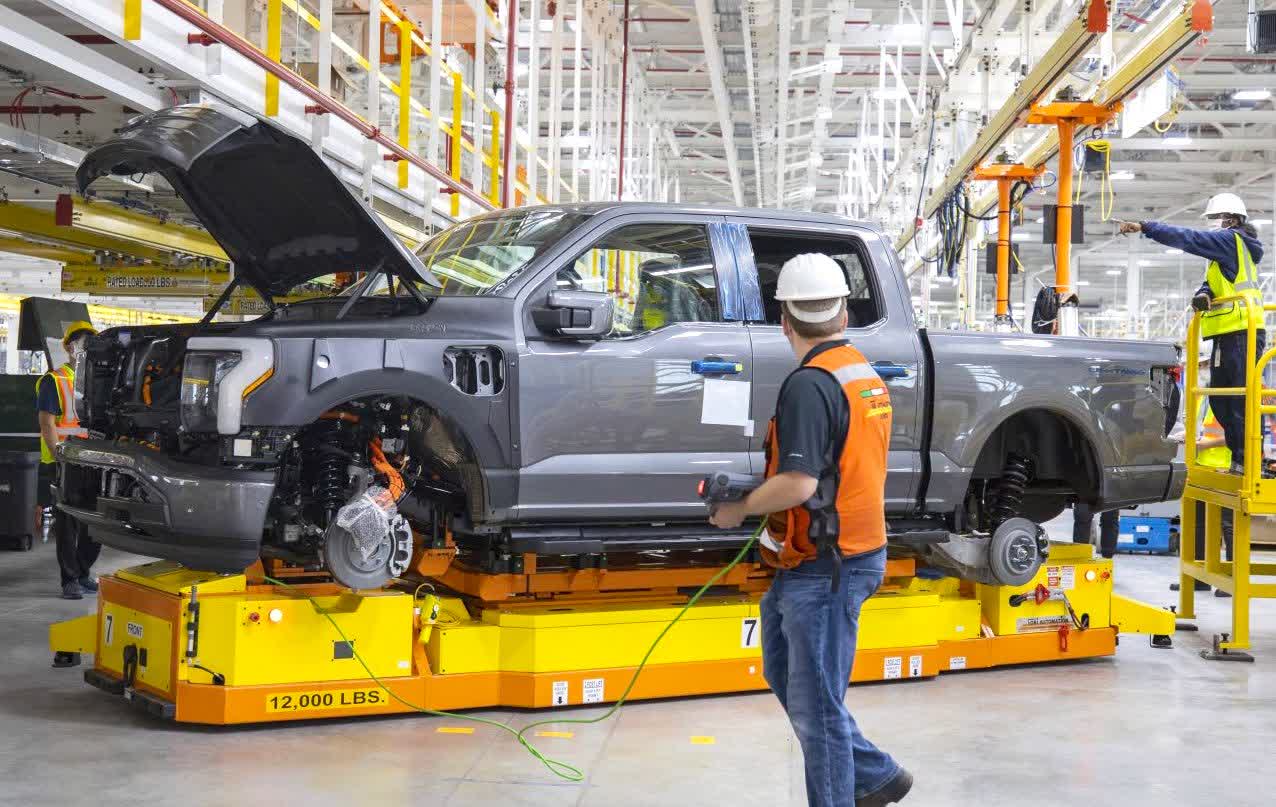Ford and GM announce plans to develop chips amid ongoing semiconductor shortage
The big film: The ongoing chip shortage has acquired so much trouble for the automotive industry that Detroit's two biggest names take now decided to step into chip evolution. Although the initial focus is on strengthening ties with existing chipmakers to deal with virtually-term shortages, Ford looks to eventually amend supply and gain independence with in-firm semiconductor development in the future.
There accept been several reported instances this year of new vehicles piling up at car dealerships and parking lots, all seemingly fit for the road just ultimately undrivable for consumers considering the manufacturer couldn't source a bit to put within in time. Others, meanwhile, accept been forced to sell cars without performance touchscreens.
Amongst Usa automakers, Ford was among the worst striking by the ongoing chip crunch, which led to tens of thousands of F-150 pickups piling upwardly on the Kentucky Speedway. Now, WSJ reports that the automaker, alongside General Motors, is getting into chip development in a bid to reduce supply constraints and gain more command over this crucial component.

Ford, which recently hired back Apple tree's automobile project pb, has ramped up its EV production plans, and its newly announced partnership with GlobalFoundries for developing chips could potentially smoothen the route ahead for vehicle production.
Chuck Grayness, Ford'south VP of vehicle embedded software and controls, says this agreement is partly meant to amend nearly-term supplies and that the company volition co-develop college-end chips with GlobalFoundries for future vehicles.

GM, meanwhile, has also set agreements with Qualcomm and NXP Semiconductors for chip manufacturing. The automaker estimates semiconductor demand to double over the next few years and says it plans to develop iii cadre flake families with similar architectures for increased semiconductor quantity and quality.
It'll be interesting to encounter if automakers can develop a more Tesla-like vertical approach to car production in the hereafter and perhaps shorten the chip crunch that's expected to linger on for a few more years.
Source: https://www.techspot.com/news/92299-ford-gm-announce-plans-develop-chips-amid-ongoing.html
Posted by: brownnoved1935.blogspot.com


0 Response to "Ford and GM announce plans to develop chips amid ongoing semiconductor shortage"
Post a Comment